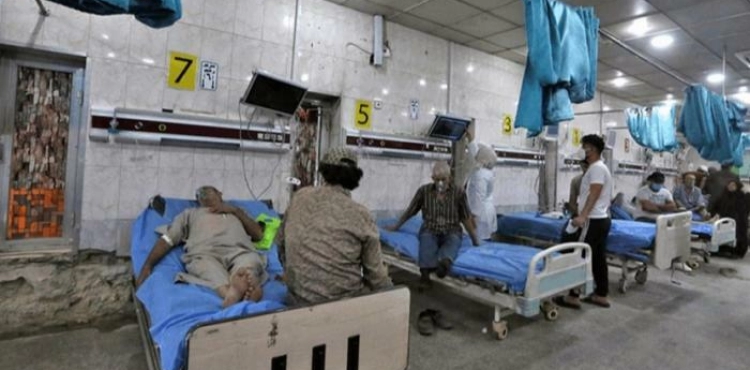At least 39 people have died as a result of cholera, which has been spreading in Syria since last month, according to a new toll of the Ministry of Health, at a time when the World Health Organization warned of the "alarming" deterioration of the situation.
And the Syrian Ministry of Health reported on Tuesday night that the cumulative total number of confirmed infections had reached 594, distributed over 11 governorates out of a total of 14 in the country, the largest number of which is in Aleppo Governorate (north).
The ministry recorded 39 deaths, 34 of them in Aleppo, explaining that "most of the deaths are caused by the delay in seeking early medical advice or by people suffering from chronic diseases."
It was not clear whether the ministry´s statistics included injuries and deaths in areas outside the government´s control.
In Geneva, the Director-General of the World Health Organization, Tedros Adhanom Ghebreyesus, said during a briefing to reporters Wednesday, "In Syria, more than ten thousand suspected cases of cholera have been reported during the last six weeks."
Since September, Syria has witnessed an outbreak of cholera in several governorates, for the first time since 2009. The ongoing conflict since 2011 has nearly two-thirds of the damaged number of water treatment plants, half of pumping stations and a third of water tanks , according to the United Nations.
Cholera usually appears in residential areas that suffer from scarcity of drinking water or lack of sewage systems. It is often caused by eating contaminated food or water, and leads to diarrhea and vomiting.
As part of efforts to limit the spread of the disease, the Syrian Ministry of Agriculture announced last week that "all vegetables that are irrigated from contaminated water in Aleppo and eaten raw will be destroyed."
And the World governorate Health Organization warned on Tuesday that the situation was "alarmingly expanding in the" where the disease had spread, and "infections were expanding to new areas."
Humanitarian organizations and workers are alerting the dangers of an outbreak of the disease in overcrowded camps for displaced people, especially in the northwest of the country, after reports of several infections.
And based on a quick assessment it was conducted with its partners, the United Nations suggested that the outbreak of infection is mainly related to drinking unsafe water, a source of the Euphrates River, as well as using contaminated water to irrigate crops.
About half of the population in Syria depends on alternative sources that are often unsafe to meet or supplement their water needs, while at least seventy percent of wastewater is not treated, according to the United Nations Children´s Fund (UNICEF).
The disease affects between 1.3 million and four million people annually in the world, and leads to the death of between 21 thousand and 143 thousand people.
39 deaths due to cholera outbreak in Syria












